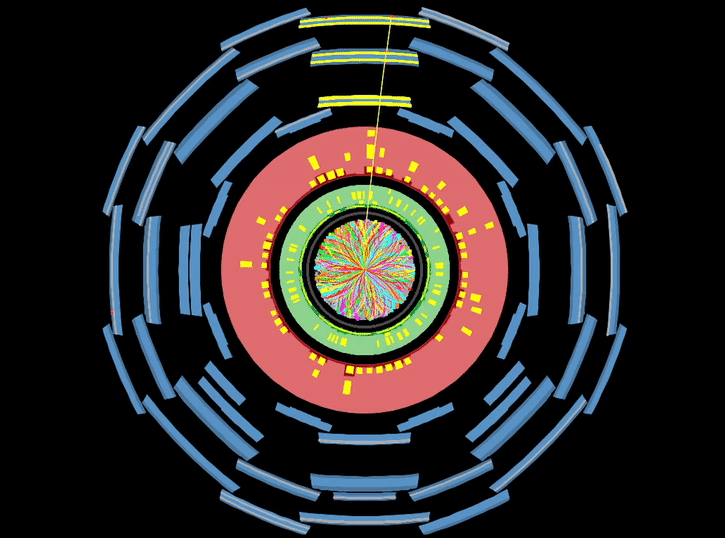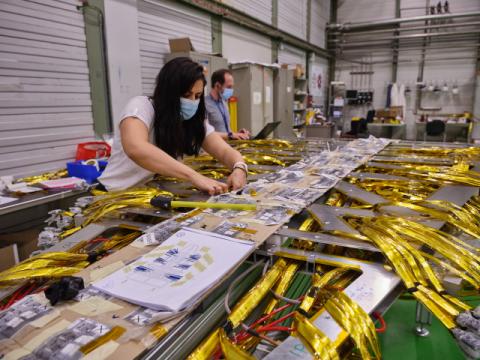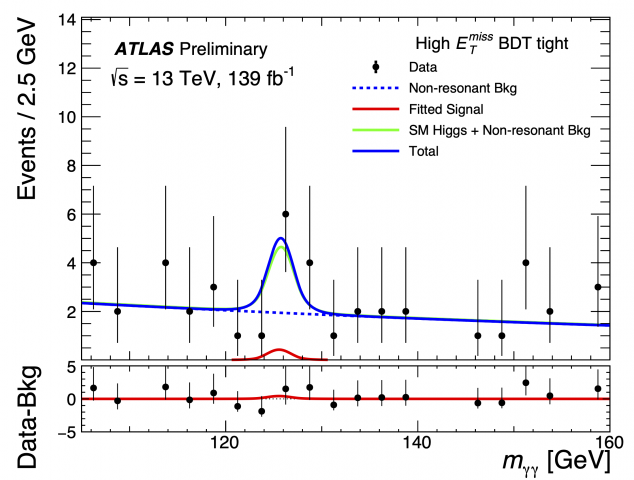Access to Collaboration Site and Physics Results
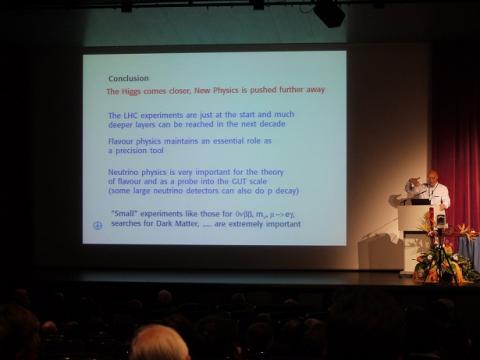
A look back at the EPS
– I happened to run into Andrey Korytov after his eagerly awaited CMS Higgs talk. No, CMS had not yet seen the Higgs, and ATLAS could breathe a sigh of relief.Read more →
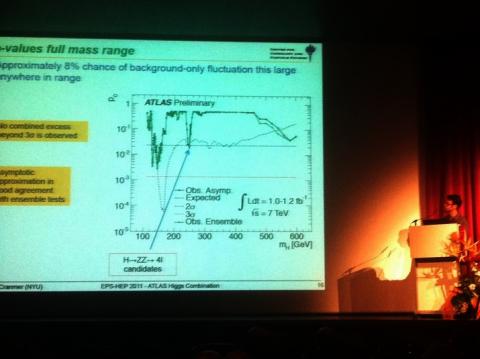
A view inside the ATLAS Higgs combination
– Well it's been a few days since the Higgs presentations at EPS, and I'm just recovering from the lack of sleep. It's ironic that I have a newborn daughter, and my sleep deprivation is due to work.Read more →
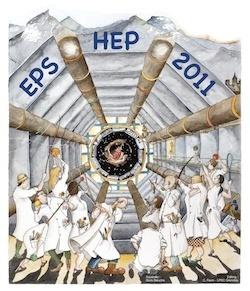
Arrival at EPS
– When I was invited to give a talk on behalf of ATLAS at this summer’s European Physical Society High Energy Physics conference (EPS), I wasn’t really sure what to expect. Most conferences I have been to are relatively intimate affairs where you have long discussions after every talk and then everybody trots down to the pub together to discuss the day’s results. EPS, though, is one of the largest particle physics conferences in the world. Or at least I reckon it is, having eyeballed the number of participants registered on the website, hailing from all sorts of fields ranging from astrophysics to ultra relativistic ions to our very own LHC proton-proton collider physics.Read more →
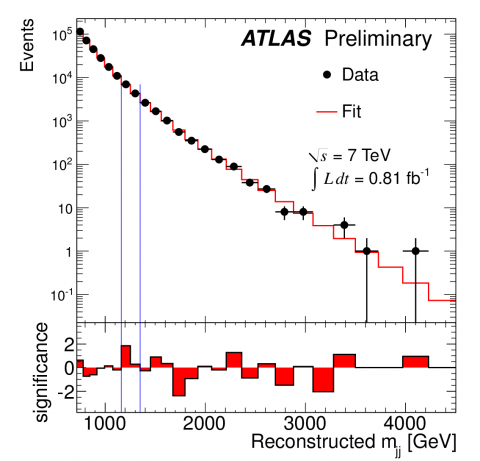
ATLAS results revealed at EPS HEP 2011 conference in Grenoble
– Many members of the ATLAS Experiment Collaboration have been at the European Physical Society's HEP 2011 conference in Grenoble, France, this week, revealing the results of 35 new and exciting physics analyses for the very first time.Read more →
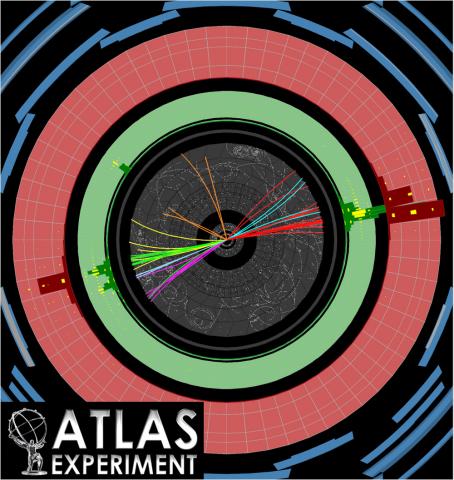
A Search for New Physics Processes using Dijet Events
– The ATLAS Experiment has extended the energy frontier of searches for new particles and new processes beyond those of the Standard Model by studying collision events with so-called "dijets".Read more →
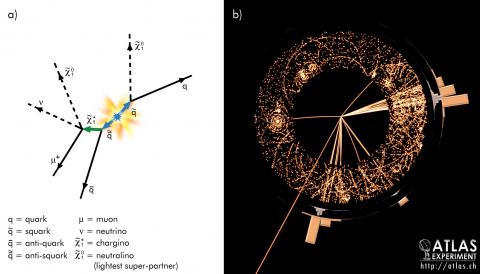
Is Nature Supersymmetric?
– String Theory predicts a new symmetry, called "supersymmetry", that could shed light on some of today's mysteries of fundamental particles and interactions. In supersymmetry, every particle-type should have a "shadow" particle called a super-partner that (in general) has a much higher mass. The ATLAS Experiment has analyzed the first year of its LHC data and searched for evidence of these super-partners of ordinary matter.Read more →

Martin Rybar
– There is usually a defining moment, or event, that leads a person to science. For 10 year old Martin Rybar, it was the moment when he found the chemistry laboratory kit from his uncle in his parents' house. Curiosity has always been the main driving force in science – and Martin was no exception.Read more →
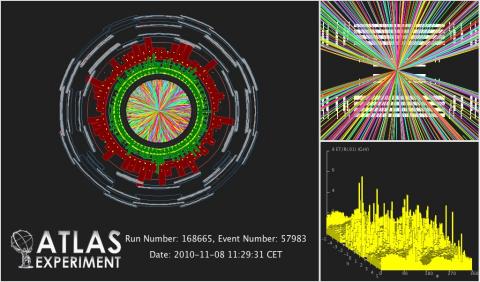
Alchemy
– Beneath our feet on this warm November night, we have realized the ancient dream of turning lead into gold.Read more →
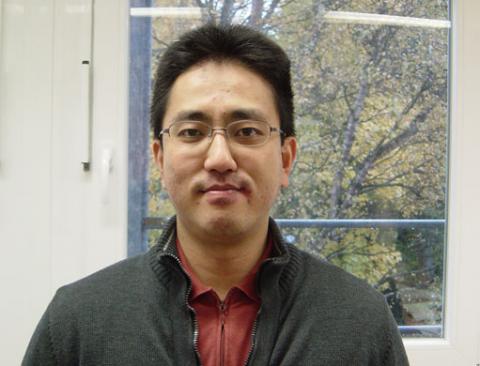
Takanori Kono
– There are many paths into science and one that might have played a key role for Takanori Kono could be LEGO bricks. Maybe it is the segmented approach learned from playing with those bricks that helped him later on tackle computer programming. It is easier to break down any problem into smaller chunks, seeing how it is put together as though it were made from basic building blocks.Read more →

Frederick Luehring
– “That's one small step for man, one giant leap for mankind,” we all remember Neil Armstrong saying while taking his first steps on the moon. As so many, Fred Luehring was glued to the television set that 21st of June, 1969, but to him this event meant much more than to most.Read more →


